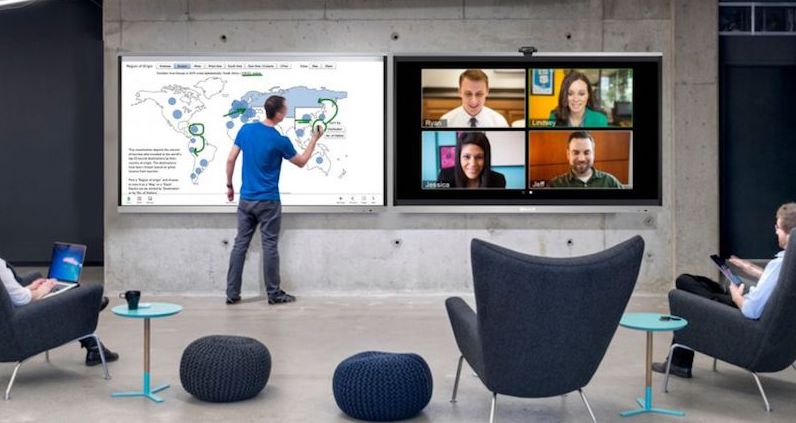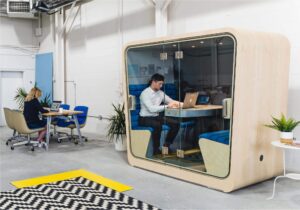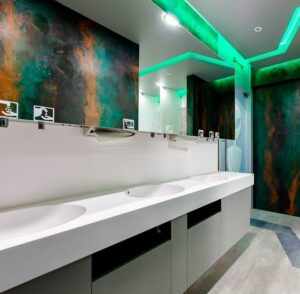
Future workplaces in the wake of the coronavirus pandemic will feature more space and greater focus on employees' health and wellness, architects in North Carolina predict, and will prioritize everything from workspace size and layout to HVAC engineering and building materials.
Chad Parker, managing director at Gensler’s office in Raleigh, says one of the biggest shifts he’s expecting is a reversal from previous demand for more density and a return to giving employees more room and privacy to work.
“I think the biggest impact right away is where we’ve been densifying, densifying, densifying,” Parker says. “That’s going to get rolled back.”
Following the global pandemic, employees won’t want to sit as close as they once did, Parker says, and this will lead to changes in a number of trends in workplace culture and structure. Things like dynamic seating in which workers can sit in different stations day to day and large communal gatherings will likely fade or stop altogether, at least in the near term.

“We had an event that will fundamentally change how we work,” Parker says. “Imagine telling someone to ride up a 20-story elevator with 10 people. It’s not gonna happen. Stairs are going to be more important."
As a global company, Gensler also benefits from the insights of its offices in Asia, where many nations are further along in the pandemic than in Europe and North America.
Those offices are seeing a greater focus on hygiene in buildings, from antimicrobial surfaces to technology that can scan the room for workers that may be sick. Parker says scanning technology probably won’t catch on as quickly in this part of the world, but he does expect companies as well as governments to invest much more in antimicrobial surfaces and other hygienic materials.
Office features that allow workers to avoid being in close proximity to groups of people will also become more popular.
“Touchless systems. How do you go to the restroom and not touch anything at all?" Parker says. "How do we support social behaviors but also support the new norm of cognizant distancing?”

In Durham, Turan Duda and Jeff Paine, partners with Duda|Paine Architects, say they expect offices will incorporate more wellness features as employers and workers become more conscious of their health at the work place.
“When you think about … the coronavirus, the quality of the air is going to matter. The space between people is going to matter,” Duda says.
This includes things like meditation rooms and outdoor space, but it also extends to things like HVAC systems and plumbing.
“How do we make that a healthy space that we’re creating? Let’s make the air you breathe the cleanest and healthiest air you can have,” Duda says. “Make sure the water is purified. Make sure we have available as a choice the employees a nutritious diet that’s healthy.”
These changes come with costs, however, and Gensler's Parker expects many companies to use the skills learned in quarantine to mitigate expenses.
“If you have to take on more space or equalize the footprint getting bigger, I think you’re going to see people implement a work from home policy,” he says.
He says if done right, remote work, plus other added efficiency, could ultimately improve costs.
“I see that being cost neutral long term, maybe cost positive,” Parker says.
And while changes will come out of the crisis, Paine says they anticipate them to come in the form of innovations and structural changes, not the end of public gatherings as we know them.
"It's similar to when we were in the midst of 9/11," he says. "People were thinking we won't have any tall building any more so people can’t blow them up."
That didn't happen. Instead, companies found new ways to innovate, Paine says.
"To some degree we have to wait and see what people’s takeaways are as far as coming into large groups of people," Paine says. "They say we won't have giant sports arenas or large gatherings ... I doubt that"
Source: Caleb Harshberger (BizJournals)
Photo/s credit to the owners
Follow us:
IG: southcrestrealty
Twitter: southcrest2012
Facebook: SouthCrest Realty